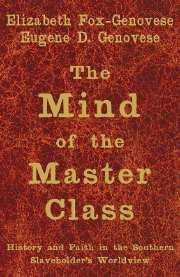Book contents
- Frontmatter
- Contents
- Preface
- List of Abbreviations
- Prologue
- PART ONE CRADLED IN THE STORMS OF REVOLUTION
- PART TWO THE INESCAPABLE PAST
- PART THREE ANCIENT LEGACIES, MEDIEVAL SENSIBILITY, MODERN MEN
- PART FOUR A CHRISTIAN PEOPLE DEFEND THE FAITH
- 13 A Christian People
- 14 Unity and Diversity among the Faithful
- 15 War over the Good Book
- 16 Slavery: Proceeding from the Lord
- 17 The Holy Spirit in the Word of God
- 18 Jerusalem and Athens – Against Paris
- 19 Serpent in the Garden: Liberal Theology in the South
- 20 Theopolitics: Golden Rule, Higher Law, and Slavery
- Coda: St. John of Pottawatamie
- PART FIVE AT THE RUBICON
- Epilogue: King Solomon's Dilemma
- Supplementary References
- Index
15 - War over the Good Book
Published online by Cambridge University Press: 05 June 2012
- Frontmatter
- Contents
- Preface
- List of Abbreviations
- Prologue
- PART ONE CRADLED IN THE STORMS OF REVOLUTION
- PART TWO THE INESCAPABLE PAST
- PART THREE ANCIENT LEGACIES, MEDIEVAL SENSIBILITY, MODERN MEN
- PART FOUR A CHRISTIAN PEOPLE DEFEND THE FAITH
- 13 A Christian People
- 14 Unity and Diversity among the Faithful
- 15 War over the Good Book
- 16 Slavery: Proceeding from the Lord
- 17 The Holy Spirit in the Word of God
- 18 Jerusalem and Athens – Against Paris
- 19 Serpent in the Garden: Liberal Theology in the South
- 20 Theopolitics: Golden Rule, Higher Law, and Slavery
- Coda: St. John of Pottawatamie
- PART FIVE AT THE RUBICON
- Epilogue: King Solomon's Dilemma
- Supplementary References
- Index
Summary
If the scriptures do not justify slavery, I know not what they do justify. If we err in maintaining this relation, I know not when we are right – truth then has parted her usual moorings and floated off into an ocean of uncertainty.
—Ferdinand Jacobs“A large portion of the Northern States believe slavery to be a sin,” a worried John C. Calhoun told the Senate in 1837, “and would believe it to be an obligation of conscience to abolish it, if they should feel themselves in any degree responsible for its continuance.” The North was falling prey to those who “have been taught to hate the people and institutions of nearly one half of this Union.” Calhoun subsequently denounced proposals to abolish slavery in the District of Columbia as first steps toward abolition in the states: “There is no code of morals which justifies the doing of that indirectly which is forbidden to be done directly.”
Religion became the sine qua non for the South's defense of slavery. In 1790 Representative James Jackson of Georgia appealed to Scripture to persuade Congress to refuse to consider Quaker antislavery petitions. Thereafter, the appeal to the divine sanction – and condemnation – of slavery grew steadily. Robert Y. Hayne of South Carolina, in his famous debate with Daniel Webster of Massachusetts in 1830, conceded that northern ministers were scoring successes in branding slavery a sin. In 1836 J. K. Paulding, a prosouthern New Yorker, began his book Slavery in the United States with a chapter on the testimony of the Bible and closed with a chapter that charged abolitionists with “prostituting the Old and New Testaments.”
- Type
- Chapter
- Information
- The Mind of the Master ClassHistory and Faith in the Southern Slaveholders' Worldview, pp. 473 - 504Publisher: Cambridge University PressPrint publication year: 2005
- 1
- Cited by



